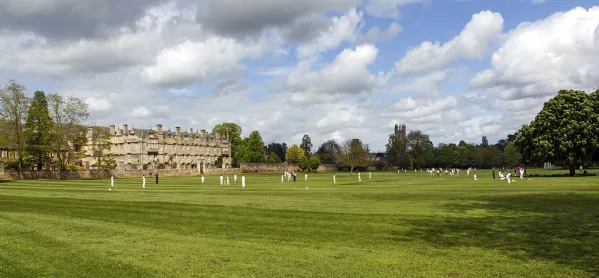It is seen as one of the attractions of the private school sector - excellent facilities and a plethora of sports competitions.
But preparatory schools say a lack of inter-school sports competitions during the pandemic has yielded surprising benefits for pupils.
In research undertaken by the Independent Association of Prep Schools among its members, nearly seven in 10 - 69 per cent - of sports departments said their pupils had developed better skills as a result of not needing to focus on competition with other schools.
Need to know: £320m PE grant for schools to continue next year
Opinion: Why bringing sport back to our school was so important
Related: Confusion reigns over school sport in lockdown
Nearly half of over 100 respondents - 47 per cent - said pupils had become more confident in their sporting ability, while over a third - 37 per cent - had noticed greater enthusiasm for PE.
Private schools ‘reconsider competitive sport’
A further 19 per cent had noticed more cohesiveness among teams after the pressure of inter-school competitions was removed.
IAPS represents more than 670 schools across the UK, made up of 160,000 pupils.
While regular competitive sport between schools is a common occurrence for pupils aged between 9 and 13, the organisation said these figures had led to questions about whether more emphasis should be placed on children’s enjoyment of sport at an early age, rather than winning matches.
The IAPS said member schools had taken a number of measures to safely reintroduce sport within school since the summer, including social distancing, reduced team numbers and adapting traditional contact sports to other non-contact alternatives.
The most common sports to have been reintroduced are hockey (86 per cent), football (83 per cent), netball (70 per cent), cricket (60 per cent) and rugby (57 per cent).
Christopher King, chief executive officer of the IAPS, said: “While the current sporting arrangement has been forced upon schools by the pandemic, these findings should make us seriously consider the role of competitive sport for children during their formative years, as the evidence suggests that focusing on skills, teamwork and participation could have a transformative effect.
“Competition and competitive sport will always have a place in prep schools, but the skill development that has been witnessed does prompt us to ask whether a slightly different approach could mean better and, perhaps more importantly, happier sportspeople in the future.”
Gareth Sharp, head of cricket at St Peter’s School in York, said: “The pandemic has given us the opportunity to step back and establish what really matters. We have evolved and adapted our learning methods, focusing on the basics to allow players to fulfil their greatest potential within a safe environment.
“Without the negative bias of worrying about failure or the short-term result, we hope we will see more enjoyment, more smiles, increased longevity and higher participation in future.”
